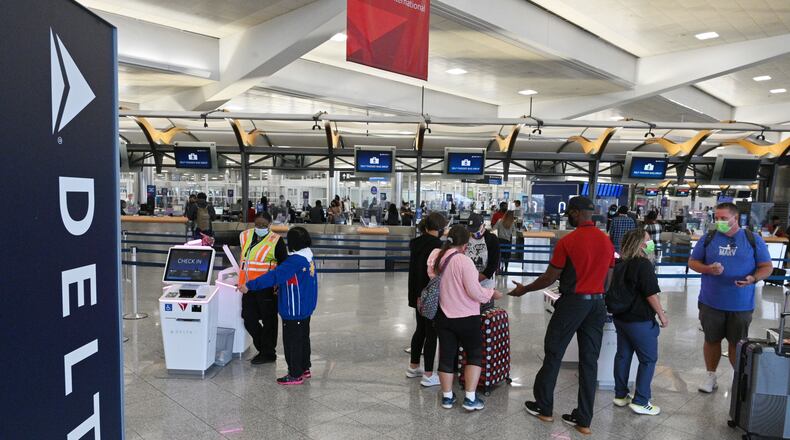Delta Air Lines reported its profit topped $1 billion in the third quarter but warned it could lose money again in the coming months amid an uneven travel recovery.
Rising fuel prices “will pressure our ability to remain profitable,” said Delta CEO Ed Bastian, who expects a “modest loss” in the fourth quarter and a full-year loss after the challenging first half of the year.
Domestic leisure traffic “has been strong for the summer, and it stayed strong in the fall,” Bastian said during an interview with The Atlanta Journal-Constitution.
He acknowledged “a small downtick” due to the delta COVID-19 variant “over the last couple of months,” but said domestic leisure traffic had recovered again.
“Our bookings over the last five or six weeks have not just stabilized but started to move forward at a pretty nice clip,” he said.
But international and business travel, two big profit drivers, remain depressed as the coronavirus continues to circulate. Many cross-border travel restrictions are still in place, and much corporate travel remains on hold as companies delay reopening offices.
Meanwhile, fuel costs are rising. The price of U.S. crude oil price closed above $80 a barrel earlier this week for the first time in nearly seven years, more than doubling from last October.
Delta reported net income of $1.21 billion in the third quarter, compared with a loss of $5.38 billion a year earlier. It was the second straight quarter the airline reported a net profit, but the first quarterly profit since the pandemic began that didn’t depend on federal CARES Act relief funding.
Not counting government grants, restructuring charges and other financial maneuvering, the airline said it would have made $216 million in pre-tax income.
Bastian said that Delta’s higher unit revenues – which are driven in part by higher fares — helped drive profitability.
Third-quarter operating revenue of $9.15 billion was three times higher than a year earlier but still down 27% compared with 2019. Operating expenses were $6.95 billion, down 27% compared with 2020 and down 34% from 2019.
High-paying business and international travelers have not yet returned en masse. Corporate travel volume in the third quarter crept up to just 40% of 2019 levels, falling short of previous forecasts. International passenger revenue was at 42% of 2019 levels. Domestic passenger revenue reached 72% of 2019 levels.
While Fortune 500 companies have been slow to send employees back out on business trips, Delta has seen growth in a different kind of premium customer — luxury leisure travelers.
In pre-pandemic days, first-class seats were filled by business travelers who got free upgrades. But “what we’re seeing are people are willing to pay us for those seats,” said Delta president Glen Hauenstein during an investor conference call. “That’s why we want to create more (premium seats) over time.”
Those flying during the pandemic have also had access to unusually posh amenities on some of Delta’s domestic routes — such as larger aircraft with lie-flat business class seats.
The airline also announced Wednesday it is buying two used wide-body Airbus A350s after slashing its fleet last year, including the retirement of all of its wide-body Boeing 777s. It is also preparing to bring back to service more of its grounded planes.
Delta has hired more than 8,000 people so far this year as it rushed to staff up after cutting its workforce by about 18,000 through buyouts and early retirements last year. That has driven costs up as the company works to improve customer service and reduce wait times.
Looking forward, with the U.S. expected to relax border restrictions next month, Bastian said Delta has seen a 10-fold increase in bookings from Europe, signaling strong European spring and summer travel in 2022.
Delta is the first major U.S. airline to report its third-quarter results. Others will report in the coming days.
About the Author
The Latest
Featured



